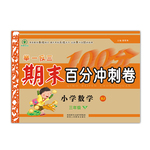
��Where's Peter�� ��He _______ to Nanjing��
A. is going B. has been C. has gone D. went
C �����������⣺�˵����Ķ�����ȥ�Ͼ��ˡ�A.is going��ȥ��Ҫȥ�����ڽ���ʱ̬��B.has beenȥ��ij�أ��ѻأ���C. has gone ȥ��ij�أ�δ�أ���D.wentȥ��һ���ȥʱ̬�����ݱ���ľ����֪�����Ѿ��������Ҳ����˵��ˣ�˵����ȥ�ˡ�����������ɵ�Ӱ�������Ѳ�����������������������ʱ����have/has gone to�ṹ��������he��������has���ʴ�ѡC�� ... ��һ������ĩ�ٷֳ�̾�ϵ�д�
��һ������ĩ�ٷֳ�̾�ϵ�д�
| �꼶 | ���пγ� | �꼶 | ���пγ� |
| ��һ | ��һ��ѿγ��Ƽ��� | ��һ | ��һ��ѿγ��Ƽ��� |
| �߶� | �߶���ѿγ��Ƽ��� | ���� | ������ѿγ��Ƽ��� |
| ���� | ������ѿγ��Ƽ��� | ���� | ������ѿγ��Ƽ��� |
��Ŀ������Ӣ�� ��Դ��2018�걱�����п�Ӣ������ר�ϰ��⣺�������20ƪ ���ͣ���������
��������������֪ijӢ�ı�ֽ���ڽ�������Ϊ���������ǣ��������㡱�Ķ����������������̸̸�Լ��Ķ��龭����������Ӣ��дһƪ����Ͷ�壬�����ڹ�ȥ��һ������˶��ٱ��飬������Щ������飬�Լ���Ϊʲôѡ�����Щ�顣
��ʾ��� books about...�� famous people�� be interested in�� be good for
��ʾ���⣺��How many books did you read last year?
��What kind of books did you read?
��Why did you choose these books to read?
I like reading very much and I often do some reading when I'm free. ___________________________________________________________________________________________________________________________________________________________________________________________________________________________________________
I like reading very much and I often do some reading when I am free. I read about 20 books last year. I mostly read books about famous people in history. I chose these books to read because I am in...�鿴�𰸺ͽ���>>
��Ŀ������Ӣ�� ��Դ���㽭ʡ���а����꼶Ӣ���²�ͬ�����ԣ�Module9 Life history Unit 2 He decided to be an actor. ���ͣ���������д����
�����������
1./pleI/______________________
2./w��?k/___________________
3./ n/____________________
n/____________________
4./j??/____________________
5./bIlt/____________________
1.play 2.work 3.on 4.young 5.built �������� 1.��������/pleI/����play 2.��������/w��:k/����work 3.��������/n/����on 4.��������/j??/����young 5.��������/bIlt/����built�鿴�𰸺ͽ���>>
��Ŀ������Ӣ�� ��Դ�����а���꼶�²�Module 2��Ԫ���Ժ��� ���ͣ�����ת��
����ת����
1.Wei Hua was washing clothes last night. (�Ի��߲�������)
________ ________Wei Hua ________clothes?
2.Wei Hua was washing clothes last night. (�Ի��߲�������)
________ ________Wei Hua ________ last night?
3.While we were talking, the teacher came in. (�Ի��߲�������)
________did the teacher________ ________?
4.Have you heard the latest news?(���϶��ͷش�)
Yes, __________./ No, __________.
5.You help me with English. It's nice of you. (����һ��)
It��s nice of you ________ ________ ________with English.
6.Mr Wang was having his lunch at home at that time. (����)
Mr Wang _______having his lunch at home at that time.
1.whenwaswashing 2.What wasdoing 3.whencomein 4.I haveI haven��t 5.tohelpme 6.wasn��t �������� 1.���⣺κ������ϴ�·������ݻ��߲���Ϊlast night����֪�������ʴ�Ӧ��when�����ʣ�����ɿ�֪ʱ̬�ǹ�ȥ����ʱ��һ�����ʾ�ֱ�Ӱ�ϵ����was�ᵽ�����ǰ�棬���ʴ�wha...�鿴�𰸺ͽ���>>
��Ŀ������Ӣ�� ��Դ�����а���꼶�²�Module 2��Ԫ���Ժ��� ���ͣ���ѡ��
The old people _______ lonely at all since we began to visit them once a week��
A. don't feel B. hasn't felt C. haven't felt D. didn't feel
C �����������⣺�Դ����ǿ�ʼÿ����һ��̽����Щ�����Ժ����ǾͲ��ٸе���į�ˡ���since������ʱ��״��Ӿ���Ʋ������Ӧ���������ʱ����ʾ��ȥ�Ѿ���ʼ�����������ڣ�Ҳ�����������ȥ���Ķ�����״̬�����ų�A��D�������������peopleΪ�Ǽ������ʣ���ʾ�������ų�B���ʴ�ѡC���鿴�𰸺ͽ���>>
��Ŀ������Ӣ�� ��Դ���˽̰���꼶�²�Ӣ�� unit3 ��4��ʱ��sectionB 1a-1e����ϰ ���ͣ���ѡ��
��Is the ride really exciting?
��Yes. You will know _____________ if you take it.
A. how exciting it is B. how exciting is it C. what exciting it is D. what exciting is it
A �����������⣺����������ĺܼ����𣿡����ǵģ������������ͻ�֪�����Ƕ�ô�������ġ����Ǹ�̾��ṹ��how+���ݴ�+����+ν��+---��what+��a/an��+���ݴ�+����+����+ν��+---����ѡA�鿴�𰸺ͽ���>>
��Ŀ������Ӣ�� ��Դ���˽̰���꼶�²�Ӣ�� unit3 ��4��ʱ��sectionB 1a-1e����ϰ ���ͣ���ѡ��
Could you tell me_____?
A. where is the station B. who is he
C. how I can get there D. when does the train leave
C �����������⿼������������ʾ�������Ӿ䣬Ҫ�ó����������ĸ�ѡ���п���ֻ��C���dz���������ѡC�鿴�𰸺ͽ���>>
��Ŀ������Ӣ�� ��Դ��2018���������п�Ӣ������ϰѵ����������� ���ͣ��������
The Spring Festival is one of the most _____festivals in China. During the Festival, Chinese people have many activities. They paste up Spring Festival couplets(����), _____ the New Year and saying goodbye to the old year. On the first day of the Spring Festival, people _____, wearing new clothes. Nowadays, children get _____ pockets from their parents and their relatives by WeChat. It is a good time for people to _____ relatives and friends. More importantly, the Spring Festival is celebrated not only in China but also in _____ parts of the world.
The Spring Festival was _____ in the UK from 1980. Every new year, people also get together and have lots of _____. They sing songs, dance to music, share photos _____ friends or watch movies in the cinema. Additionally, the Spring Festival has become ______ a key time for Chinese living in the US. They join in a large evening ______ to welcome the traditional new year. The Chinese New Year will be ______ welcomed with three weeks of celebrations across Australia. Thousands of people come to Sydney��s Chinatown. They enjoy______ fireworks(����) and lion dances. The family dinner on New Year��s Eve is an important tradition for Chinese ______they were born in Singapore or moved there from China. They usually hold it at ______because having it in a restaurant takes away the meaning of the tradition.
1.A. impolite B. important C. useless D. necessary
2.A. greeting B. avoiding C. receiving D. refusing
3.A. hang up B. hang back C. hang out D. hang in
4.A. green B. golden C. red D. brown
5.A. watch B. leave C. remember D. visit
6.A. other B. others C. another D. the others
7.A. congratulated B. happened C. graduated D. celebrated
8.A. activities B. subjects C. habits D. suggestions
9.A. of B. for C. with D. to
10.A. a B. an C. the D. �����
11.A. snow B. party C. book D. sky
12.A. honored B. expected C. built D. welcomed
13.A. enjoy B. request C. own D. interview
14.A. if B. unless C. whether D. although
15.A. home B. outdoors C. restaurant D. factory
1.B 2.A 3.C 4.C 5.D 6.A 7.D 8.D 9.A 10.C 11.A 12.D 13.A 14.C 15.A ��������������һƪ�����ġ�����������Ҫ�������Լ��ӵ���Ԯ�绰������һֻèͷӥ����Ĺ��¡�������߳ɹ��ذ�����ֻ�����ؽ��˼�����Ѱ�������ĸ�ĸ������������ᵽ����Ȼ����������� ...�鿴�𰸺ͽ���>>
��Ŀ������Ӣ�� ��Դ���㽭ʡ���а����꼶Ӣ���²�ͬ�����ԣ�Module3 Making plans Unit 1 What are you going to do at the weekend ���ͣ��Ķ���ѡ
�÷������������ʵ��ʵ���ʽ���
plan silly housework over else
1.We are going to go____________our lessons this afternoon.
2.What____________would you like to drink?
3.I often help my mother do some___________.
4.Don��t be___________. He can��t wait for you here all the time.
5.What are your____________for your holiday?
1.over 2.else 3.housework 4.silly 5.plans �������� 1.���⣺������������Ҫ��ϰ���Ρ�go over��ϰ����Ͼ����֪����Ϊover�� 2.���⣺�㻹��ȵ���ʲô�𣿽�Ͼ����֪����Ϊelse�� 3.���⣺�Ҿ���������������do some housework������Ͼ����֪����Ϊhousewor...�鿴�𰸺ͽ���>>
����ʡ������Υ���Ͳ�����Ϣ�ٱ�ƽ̨ | �����к���Ϣ�ٱ�ר�� | ����թƭ�ٱ�ר�� | ����ʷ���������к���Ϣ�ٱ�ר�� | ������Ȩ�ٱ�ר��
Υ���Ͳ�����Ϣ�ٱ��绰��027-86699610 �ٱ����䣺58377363@163.com